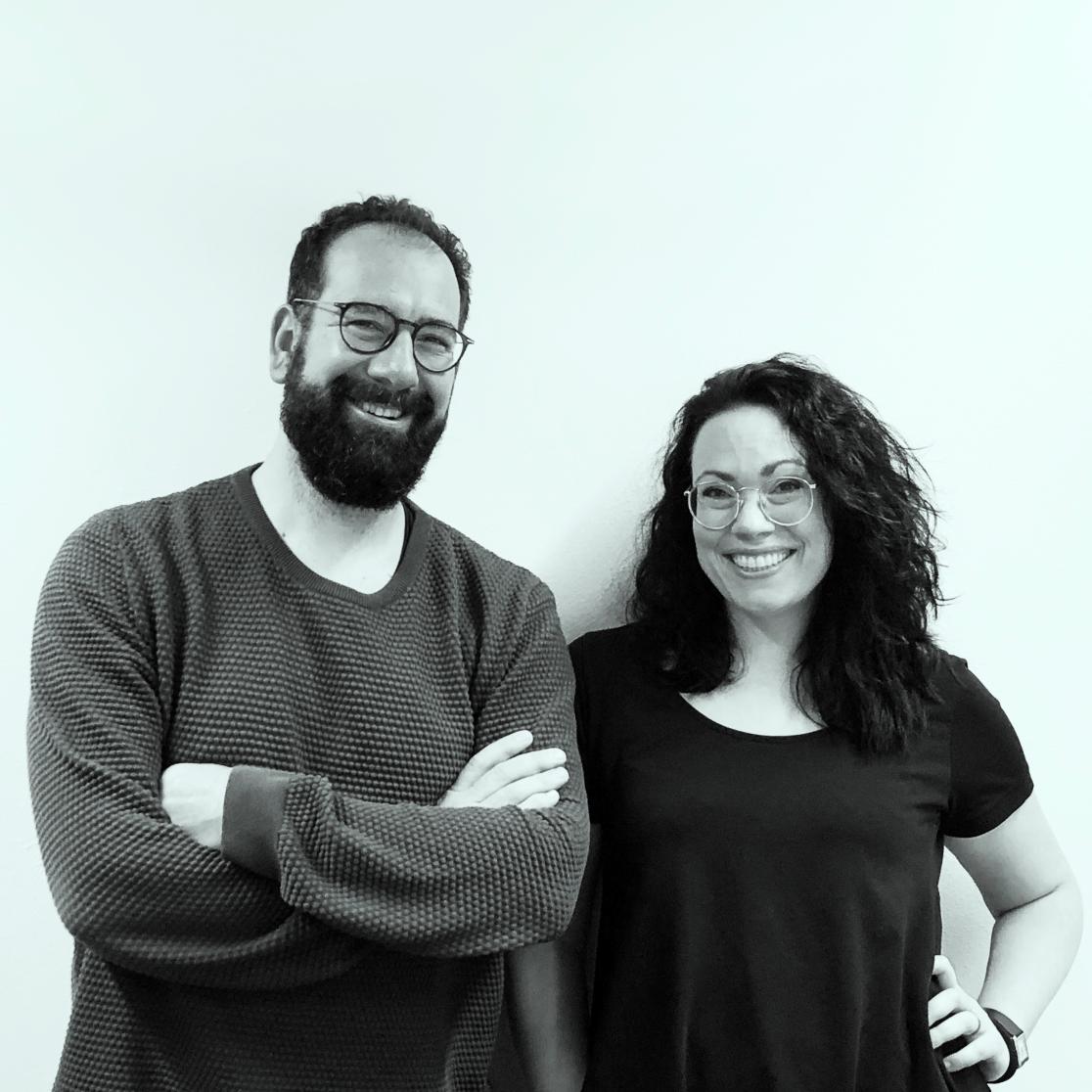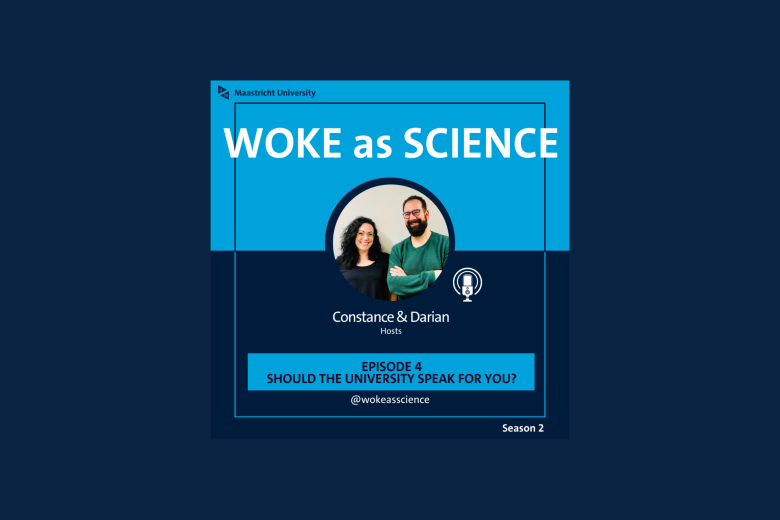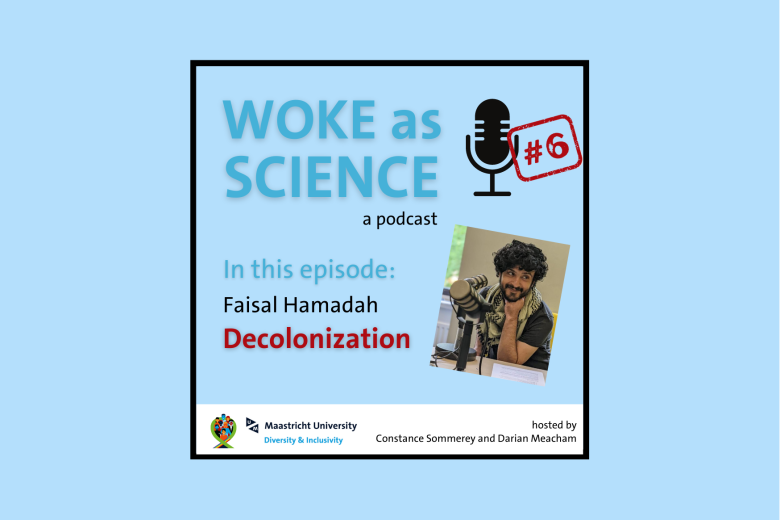Woke as Science
Whether at UM, in the Netherlands or internationally, there is a lot of commotion about ‘wokeness’ in academia. Everyone seems to have an opinion, and these opinions are often confirmed by our own echo chambers, resulting in a highly polarised discourse. A polarisation that seems impossible to overcome at times.
The strange thing is that most of us actually agree with the underlying premise: addressing injustices in our classrooms, in (access to) research and in society at large.
The idea behind this podcast and hence its title is to play with and explore exactly these associations of the term woke and its associated expressions. We aim to unpack underlying assumptions and work through some of the ideas that move our community and animate the current debate. We don't want to shy away from a label that has turned toxic but instead want to dissect the key ideas and debates behind the ‘woke wars’. Relevant guests help us in this endeavor. Accessible transcripts are available.
We're on a break!
The podcast is currently on pause, as our host has taken on the role of Director of the Faculty of Arts & Social Sciences. We're exploring possibilities for continuing the series and will share updates as soon as they're available.
Season 2
Solidarity Now!
Everybody seems to want solidarity, solidarity with Gaza, with Ukraine, with local marginalised communities...But what is solidarity actually, and why is it such a good thing? As director of the UM Diversity Office Constance is often asked to be in solidarity with many people, groups and causes, but what does this mean in practice, what are the demands that solidarity places on us? As individuals but also as institutions? We spoke to Francesco Tava, one of Europe's most exciting solidarity researchers and tried to figure out what is this thing that everyone wants more of? How do we get it, and can we have too much of a good thing?
References:
Sally Scholz, Political Solidarity (Penn State University Press, 2008)
Barbara Prainsack, Solidarity in Crisis? A Better “Pandemic Preparedness”. In F. Tava & N. Quénivet (eds.), European Solidarity: Interdisciplinary Perspectives (ECPR Press, 2023).
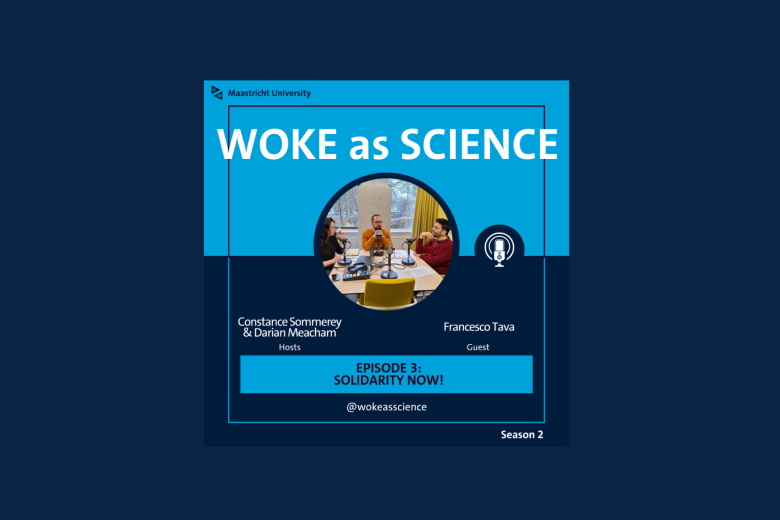
Woke ChatGPT
Large Language Models (LLMs) like ChatGPT seem to be awash in ethical problems like bias, hidden labour, lack of transparency, energy use…but since when did they become too Woke? When Constance and Darian enlisted ChatGPT to expand their horizons into conservative and far-right ideas they ended up in the same liberal bubble as always, what gives? Thankfully, data scientist Jerry Spanakis was on hand to try to explain what’s going on and how both training data and tweaking by socially liberal engineers can lead to a liberal status quo being reproduced by some models. Is this such a bad thing? Listen and find out.
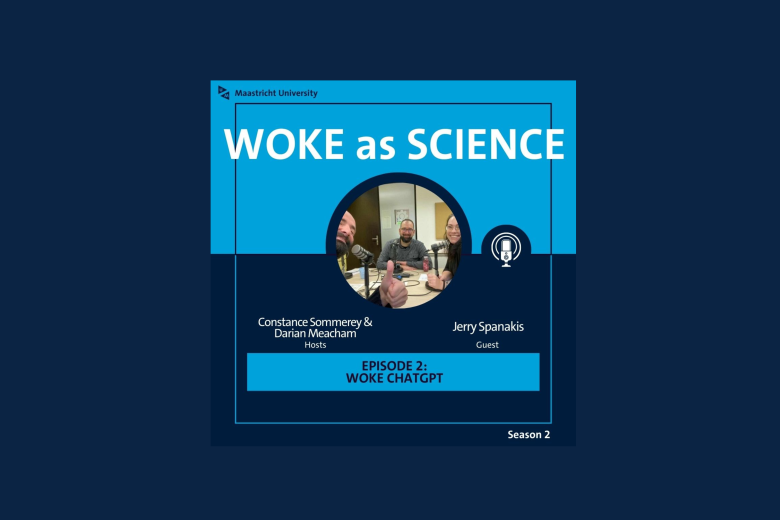
Englishization
Sometime this Spring (2024), Maastricht University will have to submit a plan to the Dutch government explaining how we will “considerably decrease” the amount of English Language programmes. Why is this happening? What’s the problem with studying in English? According to researchers René Gabriëls and Bob Wilkinson, it’s got a lot to do with feelings of linguistic injustice. We were not so easily convinced and invited them for a talk.
References:
Englishization:
Gabriëls, R., & Wilkinson, R. (2020). Resistance to EMI in the Netherlands. In H. Bowles & A. C. Murphy (Eds.), English-medium instruction and the internationalization of universities (pp. 49-75). Palgrave Macmillan.
Van Parijs, P. (2021). Englishization as trap and lifeline. In R. Wilkinson, & R. Gabriëls (Eds.), The Englishization of higher education in Europe (pp. 355-367). Amsterdam University Press.
Wilkinson, R., & Gabriëls, R. (Eds.) (2021). The Englishization of higher education in Europe. Amsterdam University Press.
Wilkinson, R., & Gabriëls, R. (2022). The Englishization of higher education in a Dutch university context: The glocalization of English-medium instruction. In J. McKinley & N. Galloway (Eds.), English-medium instruction practices in higher education. International perspectives (pp. 239-252). Bloomsbury.
Linguistic justice:
Soler, J., & Morales-Gálvez, S. (2022). Linguistic justice and global English: Theoretical and empirical approaches. International Journal for the Sociology of Language, 277, 1-16. https://doi.org/10.1515/ijsl-2022-0026
Van Parijs, P. (2001). Linguistic justice for Europe and for the world. Oxford University Press.
Wilkinson, R., & Gabriëls, R. (2020). Plurilingual Students in EMI: Perceptions on Educational Democracy and Linguistic Justice. In M. Kuteeva, K. Kaufhold, & N. Hynninen (Eds.), Language perceptions and practices in multilingual universities (pp. 217-244). Palgrave Macmillan.
Economics and language policy:
Grin, F. (2015). The economics of English in Europe. In T. Ricento (Ed.), Language policy and political economy: English in a global context (pp. 119-144). Oxford University Press.
Grin, F., Sfreddo, C., & Vaillancourt, F. (2010). The economics of the multilingual workplace. Routledge.
Gazzola, M., Templin, T., Wickström, B.-A. (Eds.) (2018). Language policy and linguistic justice: Economic, philosophical, and sociolinguistic approaches. Springer.
Sabaté-Dalmau, M. (2020). Neoliberal language policies and linguistic entrepreneurship in higher education. Language, Culture and Society, 2(2), 174-196.
Language and power:
Bourdieu, P. (1999). Language & symbolic power. Harvard University Press.
Gabriëls, R., & Wilkinson, R. (2024). EMI, power and expressivism: Different stakeholders and conflicting interests. Journal of English-Medium Instruction, 3(1), 1-10. https://doi.org/10.1075/jemi.00005.gab
Kachru, B.B. (1986). The power and politics of English. World Englishes 5(2-3), 121–40.
Ostler, N. (2006). Empires of the word: A language history of the world. Harper Perennial.
Language choice for EMI:
Bälter, O., Kann, V., Mutimukwe, C., & Malmström, H. (2023). English-medium instruction and impact on academic performance: A randomized control study. Applied Linguistics Review. Advance online publication. https://doi.org/10.1515/applirev-2022-0093
Lueg, K., & Lueg, R. (2015). Why do students choose English as a medium of instruction? A Bourdieusian perspective on study strategies of non-native English speakers. Academic of Management Learning and Education, 14(1), 5-30. https://www.jstor.org/stable/43696662
Nguyen, An (2024). A longitudinal study on content learning of EMI students in Vietnam from Bourdieusian perspectives. Journal of English-Medium Instruction, 3(1), 115-138. https://doi.org/10.1075/jemi.22014.ngu
Global nomads and elites:
Kannisto, P. E. (2014). Global nomads: Challenges of mobility in a sedentary world. [Dissertation, Tilburg University]. Ridderprint. https://pure.uvt.nl/ws/portalfijiles/portal/3511053/Kannisto_Global_18_06_2014.pdf
Lo Bianco, J. (2010). Globalization, universities, and medium of instruction. In P. Peterson, E. Baker & B. McGaw (Eds.),International Encyclopedia of Education (3rd ed.) (pp. 201-208). Elsevier.
Language and colonization:
Boussebaa, M., & Brown, A.D. (2016). Englishization, identity regulation and imperialism. Organization Studies, 38(1), 7-29. https://doi.org/10.1177/0170840616655494
De Swaan, A. (2001). Words of the world: The global language system. Polity Press.
Habermas, J. (1981). Theorie des kommunikativen Handelns. Suhrkamp.
Macedo, D. (2000). The colonialism of the English only movement. Educational Researcher, 29(3), 15-24.
Nieto, D. G. (2007). The emperor’s new words. Language and colonization. Human Architecture: Journal of the Sociology of Self-Knowledge, V [Special Issue], 231-237.
Phillipson, R. (1992). Linguistic imperialism. Oxford University Press.
Souad, M., & Ramdane, T. (2019). Learning English in the 21st century: For globalization or westernization? International Journal of Humanities and Social Science, 9(6), 165-172.
Tam, K.-k. (2010). The Englishized subject. Postcolonial writings in Hong Kong, Singapore and Malaysia. Springer.
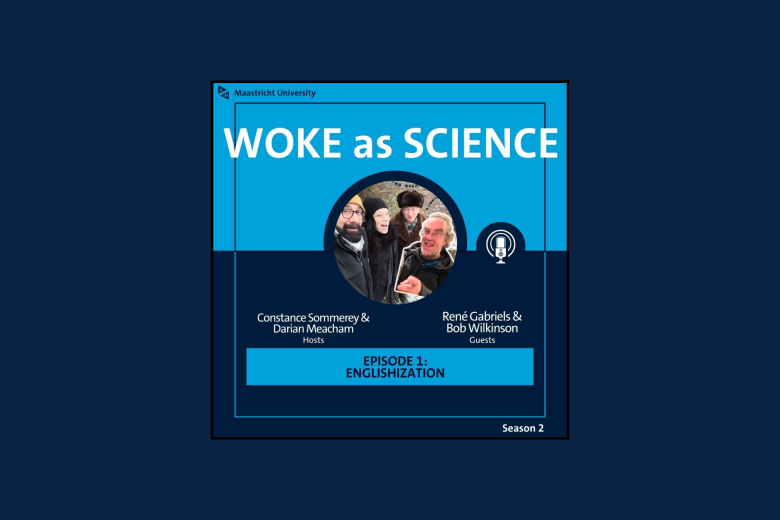
Season 1
On Speaking up
Speaking up, voicing concerns, calling out – there are many ways to give a less threatening spin to the term ‘complaining’. However, we want to call this act, it is necessary in any organisation to be able to alert people to and discuss biases, blind spots and injustices. While there are often (complaint) structures present to facilitate such processes, speaking up is not always (made) easy. It comes with anger and frustrations and is often met with anger and frustrations. We invited BA student Sophia Longwe who has done her fair share of speaking up to give some insights and tips for finding the courage and dealing with the repercussions of putting yourself out there as a complainer.
Listen to the podcast
Read the accessible transcript
Reference list:
- Flensner, K. K., & Von der Lippe, M. (2019). Being safe from what and safe for whom? A critical discussion of the conceptual metaphor of ‘safe space’. Intercultural Education, 30(3), 275-288. https://doi.org/10.1080/14675986.2019.1540102
- Samatar, A., Madriaga, M., & McGrath, L. (2021). No love found: how female students of colour negotiate and repurpose university spaces. British Journal of Sociology of Education, 42(5–6), 717–732. https://doi.org/10.1080/01425692.2021.1914548
- MacLachlan, A. (2022, May 7).Tone-Policing and the Assertion of Authority. Blog of the APA. https://blog.apaonline.org/2022/05/10/tone-policing-and-the-assertion-of-authority/
- Essed, P. (1991). Understanding everyday racism: An interdisciplinary theory. Sage Publications, Inc.
- EDLAB. (2020, September 11). Webinar: Decolonizing the Curriculum with Aincre Evans| 9 sept 2020 [Video]. YouTube. https://www.youtube.com/watch?v=3cOIzUtWN34
"When they speak it is scientific;
when we speak it is unscientific.
Universal / specific;
objective / subjective;
neutral / personal;
rational / emotional;
impartial / partial;
they have facts, we have opinions;
they have knowledge, we have experiences."
- Grada Kilomba, Plantation Memories
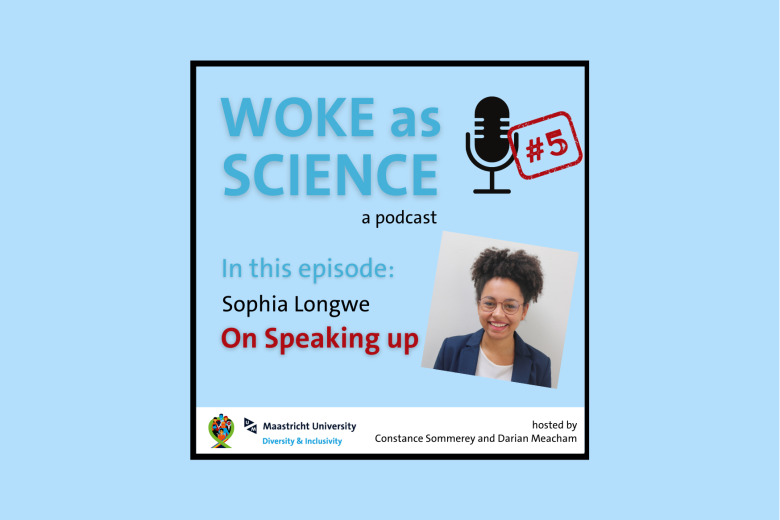
Will the real progressives please stand up?
Ok, let’s all sit down for a moment. One thing we learned over the past months of doing this podcast is that everyone seems to think that they are the real progressives while the others simply are not. The Others are either too conservative, too ‘woke’, too blinded by the system, too unreasonable, unscientific, against academic freedom or not really interested in addressing questions of social injustice. For this episode, Darian and Constance try to make some sense of these claims to ‘real’ progressivism.
We talk about Nina Simone’s lyrics about ‘do it slow’.
Listen to the whole song: Nina Simone - Mississippi Goddam
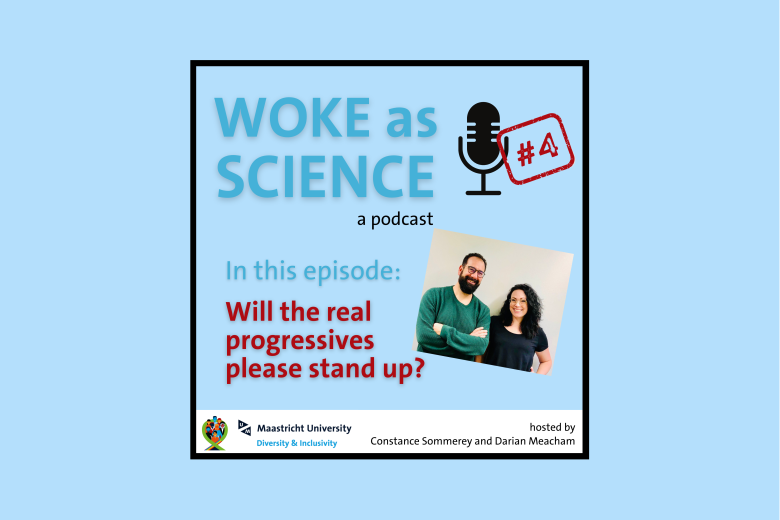
Are universities too left wing for their own good?
Are universities too left wing for their own good? Andreas de Block, the author of a forthcoming book Is links gewoon slimmer [Is the left just smarter?] thinks so, and he’s worried about the effect it’s having on research. We try to figure out what he means, what worries him and ask some questions about what it means to be left or right wing in today’s political and academic context. These questions include: What are conservative values that are being neglected by too left-wing scientists? Are contemporary right-wing politics inherently anti-science and anti-intellectual? And how do these concerns about ideological bias in the university relate to conflicts between ‘woke’ and anti-’woke’ self-identifying leftists in the academy?
Trigger Warning: this episode includes discussions on perceptions of homosexuality and its relation to previous versions of the American Psychiatric Association’s Diagnostic and Statistical Manual of Mental Disorders. This episode also contains some mockery of the Republican Party (USA).
Reference list
- Green, L. (2017). Because They Are Universities. Daily Nous. Retrieved 28-02-2023: https://dailynous.com/2017/09/18/because-they-are-universities/
- Gross, N. (2013). Why are Professors Liberal and why do Conservatives Care? Harvard University Press.
- Peters, U., Honeycutt, N., De Block, A. & Jussim, L. (2020). Ideological diversity, hostility, and discrimination in philosophy. Philosophical Psychology, 33(4), 511-548, DOI: 10.1080/09515089.2020.1743257
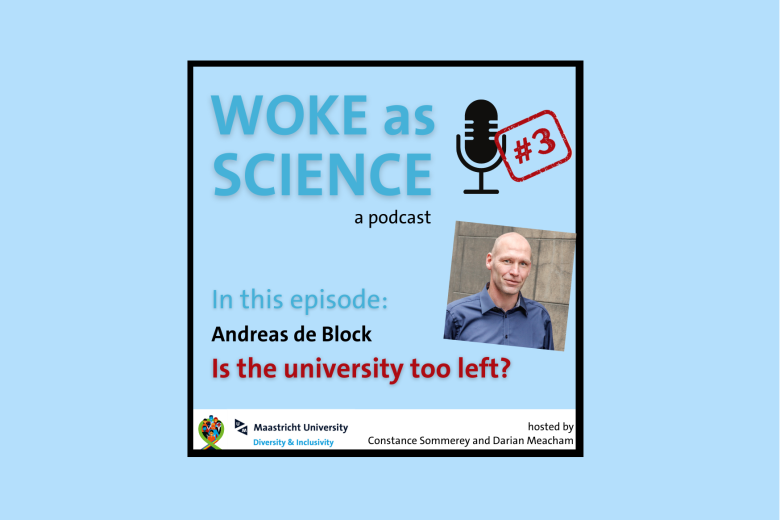
!Trigger Warnings!
Trigger Warnings – a common courtesy? An absolute necessity? Student coddling? A first step on the slippery slope towards censorship in our classrooms? It seems the topic of Trigger Warnings (TW) is at least baffling, if not chilling, to teachers whereas many students are baffled precisely by their teachers’ aversion to Trigger Warnings. Enough discussion fodder for us to invite Adina Petre, a psychotherapist specialized in trauma, and discuss the (un)usefulness of Trigger Warnings in higher education.
Listen to the podcast
Read the accessible transcript
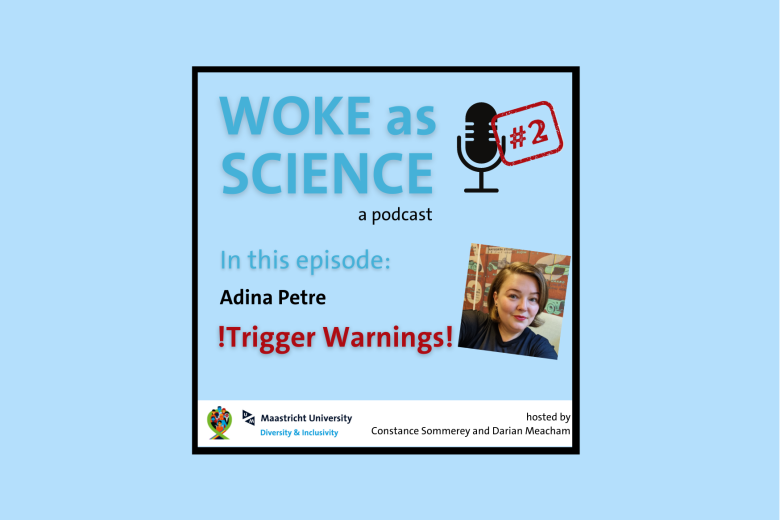
Intersectionality + intro to podcast
In our first episode, we invite philosopher Dr. Sophie Withaeckx to talk about ‘intersectionality’. Intersectionality has become a commonplace term when talking about social justice and D&I efforts in practice. Plans that try to address anti-racism or gender equality are now also ‘intersectional’. This framing often is sold as a solution to addressing social justice more holistically or fairly - but how does an intersectional lens really work? What insights does it offer? And how do these insights translate into social justice action and concrete policy (or not)?
Listen to the podcast
Read the accessible transcript
Reference list - also suggested by Sophie:
- Anzaldúa, G. (2012). Borderlands/La Frontera. The new mestiza. Fourth edition. Aunt Lute Books.
- Collins, P. H. (2000). Black Feminist Thought: Knowledge, Consciousness, and the Politics of Empowerment. Second edition. New York: Routledge.
- Crenshaw, K. (1989). Demarginalizing the intersection of race and sex: A black feminist critique of antidiscrimination doctrine, feminist theory and antiracist politics. University of Chicago Legal Forum, 139-167.
- Crenshaw, K. (1991). Mapping the margins: Intersectionality, identity politics and violence against women of color. Stanford Law Review, 43(6), 1241-1300.
- Dhawan, N., & Castro Varela, M. d. M. (2016). "What difference does difference make?": Diversity, intersectionality and transnational feminist politics. Wagadu: A Journal of Transnational Women's and Gender Studies, 16, 9-43.
- Hancock, A.-M. (2016). Intersectionality. An intellectual history. New York: Oxford University Press.
- hooks, b. (1981). Ain't I a Woman: Black Women and Feminism. Boston: South End Press.
- Tamale, S. (2020). Decolonization and Afro-Feminism. Ottawa: Daraja Press.
- The Combahee River Collective (1977). The Combahee River Collective Statement. Retrieved from https://combaheerivercollective.weebly.com/
The episode refers to gay men as a high-risk group to experience sexual violence. Please see: Dworkin, E. R., Krahé, B., & Zinzow, H. (2021). The global prevalence of sexual assault: A systematic review of international research since 2010. Psychology of Violence, 11(5), 497–508. The link to the article.
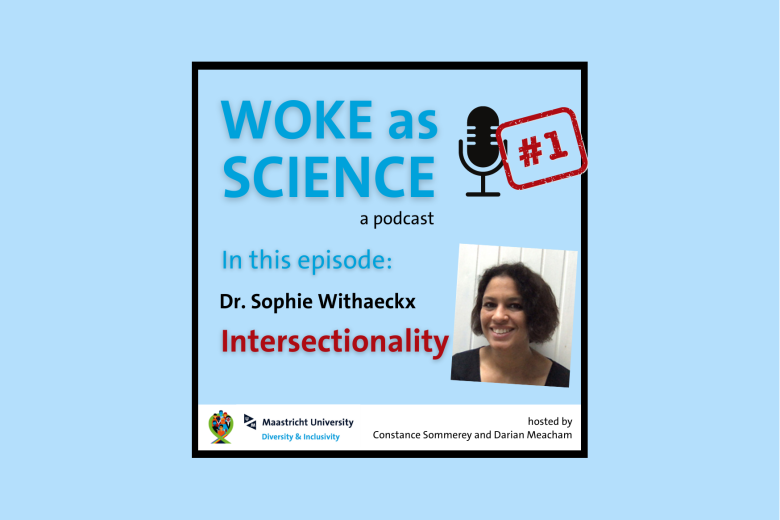
Does ‘Wokeness’ threaten Academic Freedom?
Constance and Darian were invited by Dr. Chang Sun from the DSMindsets Podcast to talk about ‘wokeness’ and the perceived threat it carries to academic freedom. We consider this episode #0 because we discuss some basic questions relating social justice, scientific objectivity and the concept of bullshit. We want to thank Chang for hosting us!
Listen to the podcast
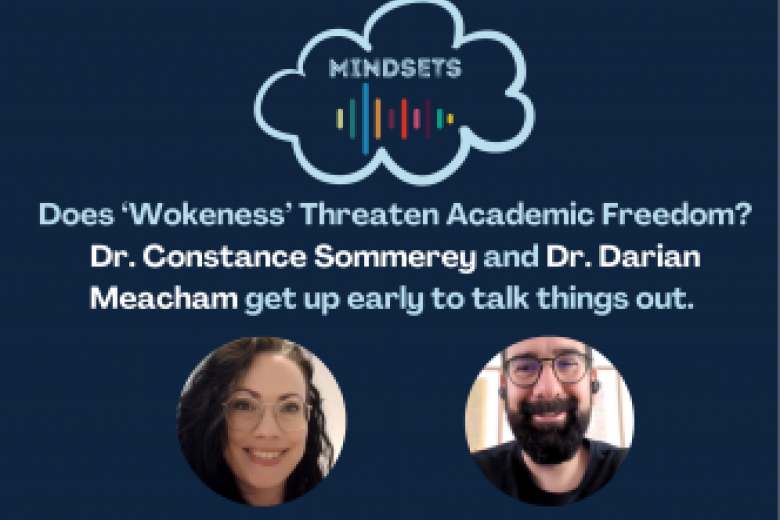
-
Episode #6Decolonization
-
Episode #5On Speaking up
-
Episode #4Will the real progressives please stand up?
-
Episode #3Are universities too left wing for their own good?
-
Episode #2!Trigger Warnings!
-
Episode #1Intersectionality + intro to podcast
-
Episode #0Does ‘Wokeness’ threaten Academic Freedom?
Your hosts
Who are we?
We are the perceived wokeness-official on the ‘Berg’ (refers to main administrative building of Maastricht University) and a conservative middle aged half west-asian philosopher. Constance Sommerey (on the right) is director of UM’s Diversity and Inclusivity Office. Darian Meacham (on the left) is from the philosophy department of the Faculty of Arts and Social Sciences.
